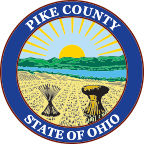Probate FAQ
- Initial Instruction Sheet for Pro Se Estates (32 KB)
- Information Regarding Ownership of Property (18 KB)
QUESTION: Where can I get a copy of my birth certificate?
Answer: If you were born in the State of Ohio, you may obtain a copy of your birth certificate from your local
Department of Health. The only birth and death records in the Probate Court are archival records from 1867 to 1909.
Any births or deaths after 1909 are at the Health Department.
http://pike-health.org/Default.aspx?PageId=279
http://pike-health.org/Default.aspx?PageId=279
QUESTION: Where can I get a power of attorney?
Answer: This is a frequently asked question. The probate court does not have forms for a power of attorney.
Grandparent powers of attorney are available in the juvenile court. General/durable powers of attorney are legal documents that
are best prepared by attorneys. You are encouraged to consult an attorney.
QUESTION: Can the court staff help me complete my forms?
Answer: Unfortunately, no. By law the court staff (including the Judge) is prohibited from offering any
assistance in the completion of any forms, nor are they permitted to advise you as to which forms you should file.
You will need to consult an attorney for any assistance.
QUESTION: What is a probate estate and is it necessary to open an estate?
Answer: Please see the initial instruction sheet.
QUESTION: How do I know if a person left a will?
Answer: The Probate Court can do a search and determine if a will was put on deposit for safe
keeping by the decedent during his lifetime. The deposit of a will during a person’s lifetime is not a requirement. It is a
public service the probate court offers solely for safe keeping of a will. Please see the section
Will Deposits for more
information. If it is determined that a will is on deposit with the probate court and the testator has passed away, the
will must be offered for probate before it becomes public record. The deputy clerk can also do a search to see if an estate
was opened for the testator and if a will was offered for probate. This information would be considered public record.
Unless a will is placed on deposit or offered for probate, the probate court would have no knowledge whether a will would
exist for a decedent or not. You are encouraged to seek the advice of an attorney to determine what steps you should take next.
QUESTION: Do I need an attorney in the Probate Court?
Answer: This is a court. It is always a good idea to consult with an attorney and be represented by an
attorney in court. The law is complex and attorneys are trained professionals who understand the law and how it relates to
your case. After consultation with an attorney, you may determine that you can represent yourself. Except for adoptions,
you are permitted to proceed pro se in any cases in the probate court. Due to the complex nature of adoptions, you will be
required by this Court to have an attorney to proceed with the adoption of a minor. The Court may also require you to hire
an attorney to prepare the paperwork to transfer any real property.
